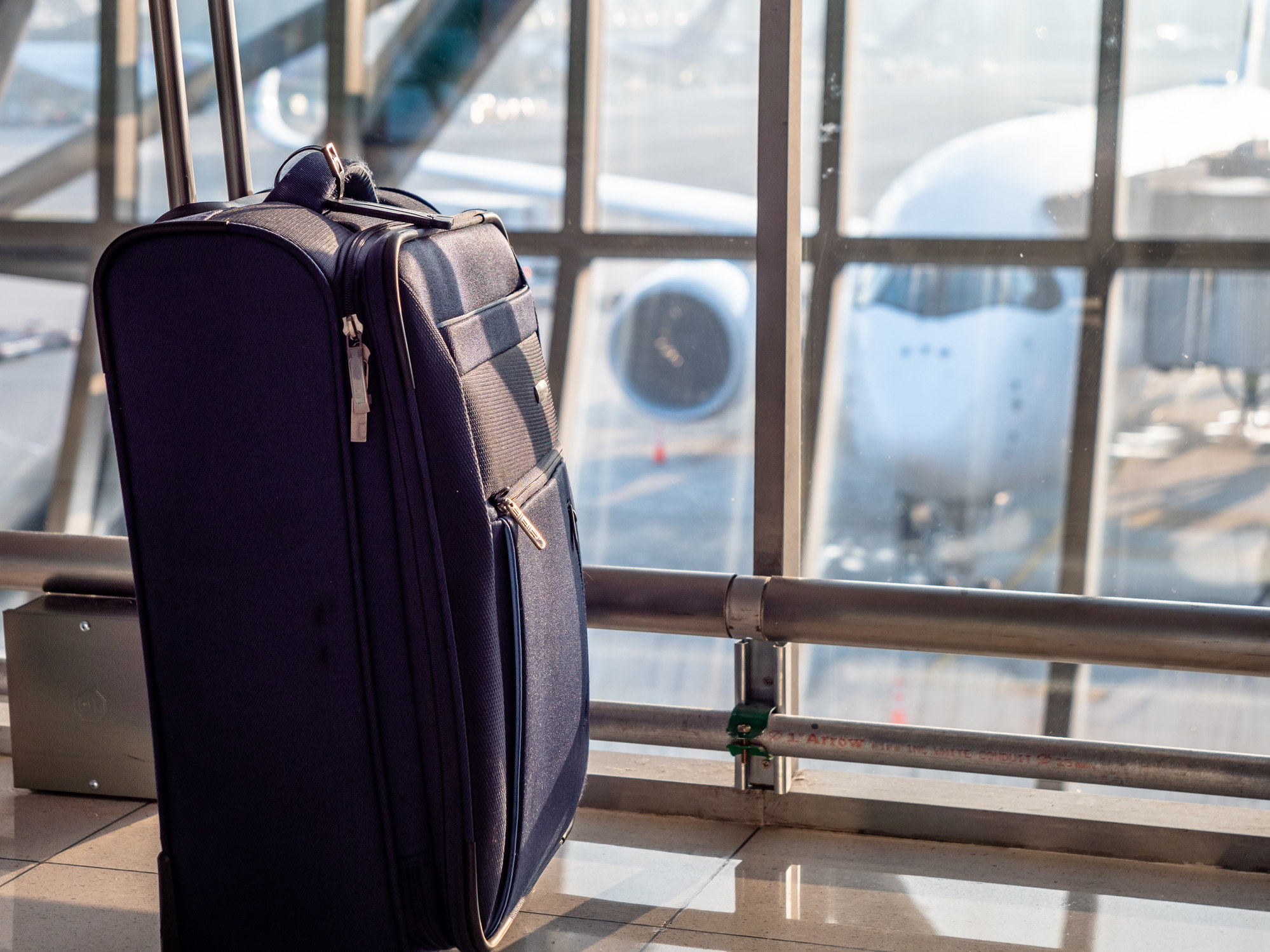Allyah McIntyre is a US-based flight attendant who often shares her travels and behind-the-scenes of her career on TikTok. And recently, she went viral for revealing tips for how to remain safe while staying in hotels, and it's starting an important conversation.
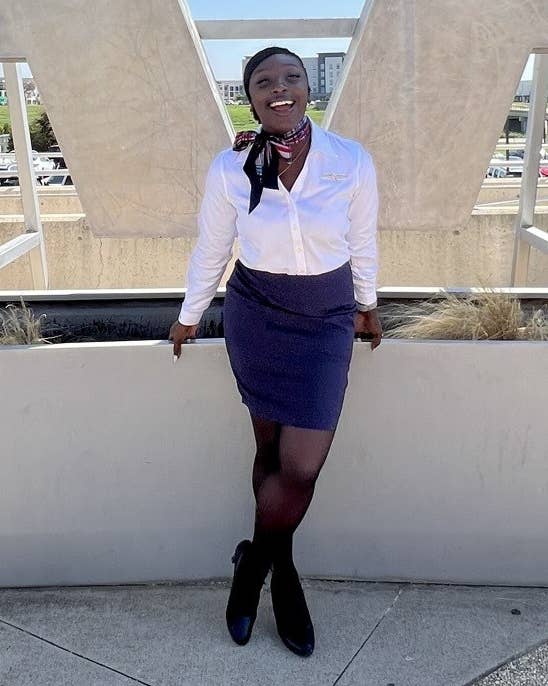
Allyah begins her routine by checking various areas of the room upon arrival before settling in, making sure she's actually alone and safe. "I check anything that I can’t directly see behind: doors, curtains, large cabinets, under beds, and box springs (because it’s hollow in there)," she told BuzzFeed. "[It] may seem a bit dramatic, but bodies have been found in spaces like that in the past."

Allyah then demonstrates a tip she learned from another experienced flight attendant — to use a hanger to check behind the curtains in case someone is hiding behind them. "If they grab something, it'll be a hanger and not you," she says in the video.
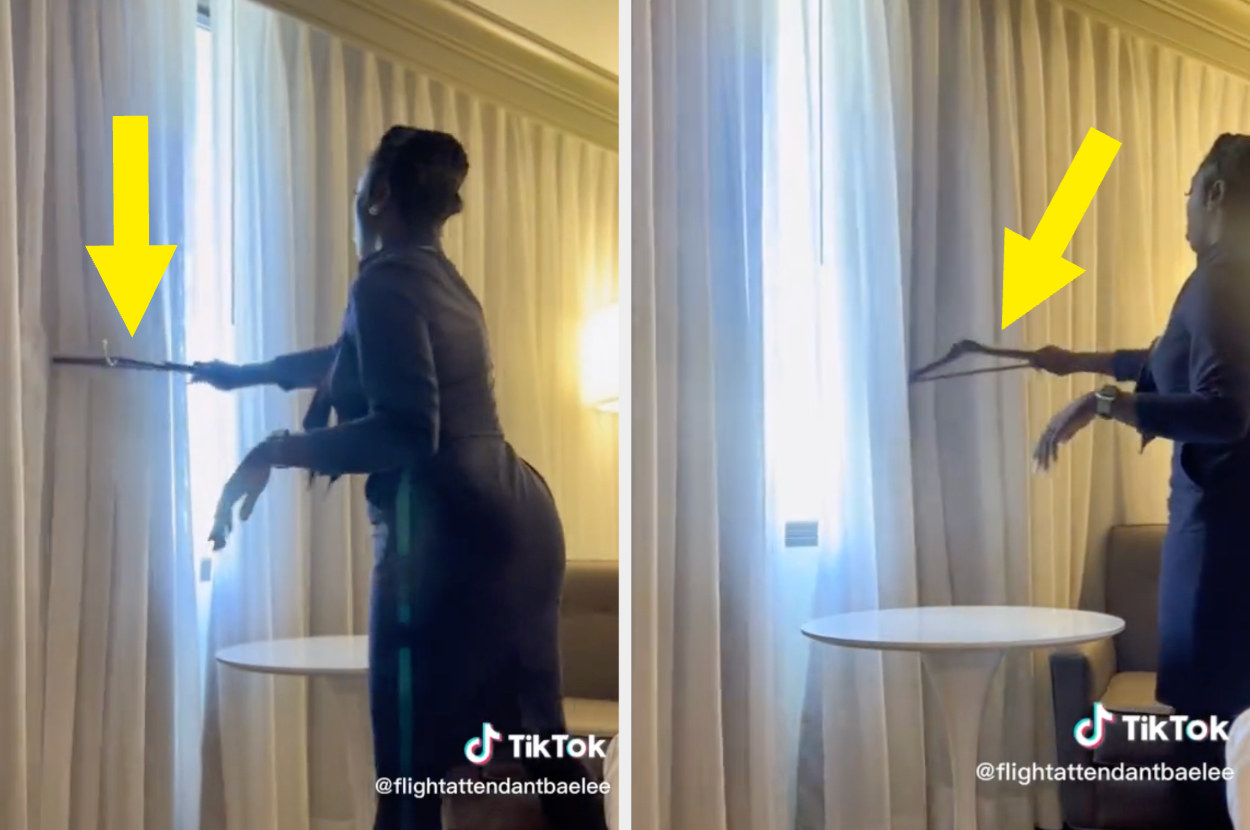
She also secures her hotel room with an extra portable door lock, which she explained provides "more protection" than the regular hotel locks. "I feel like the hotel locks are there to give you a peace of mind, but in reality, they’re not very hard to maneuver past."
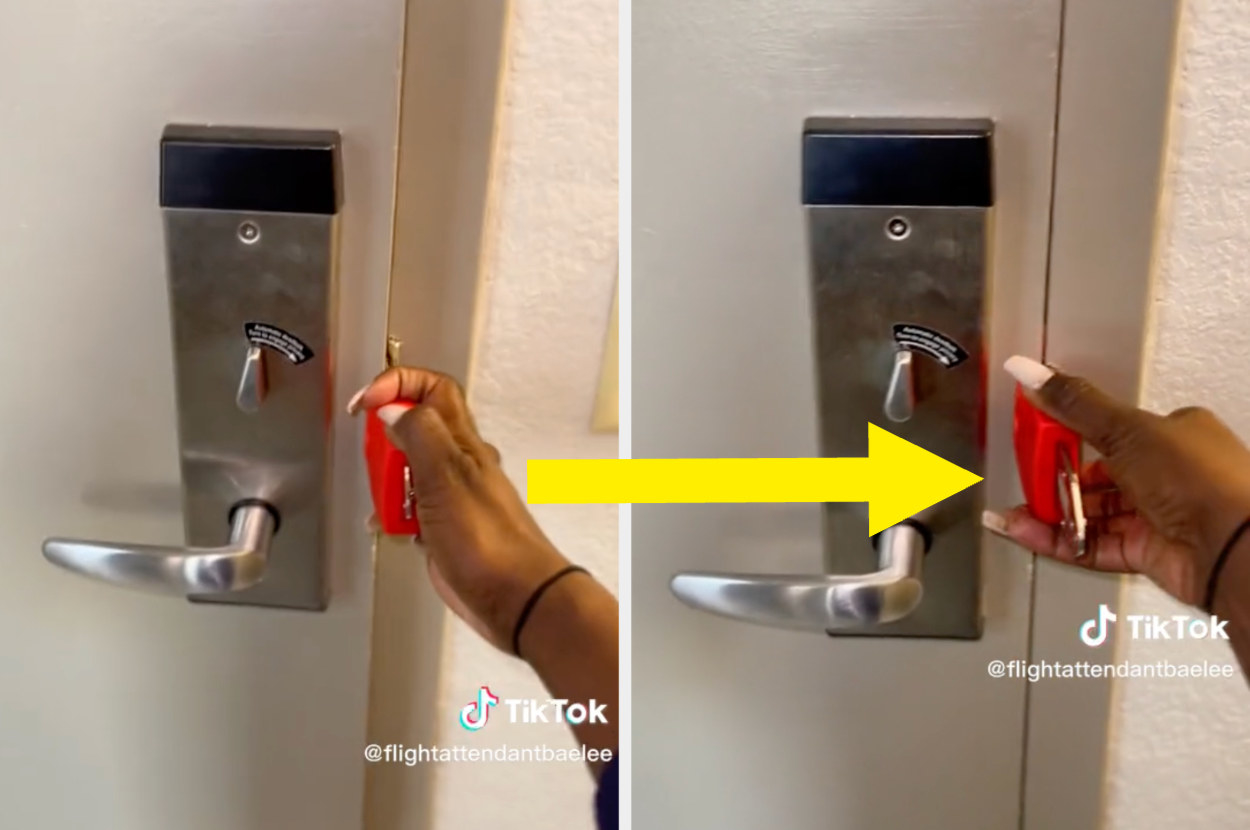
Allyah ends her routine by using a door stop for extra security that has an alarm that goes off if someone enters the room. "It’s very loud, and it will for sure alert me as well as others if necessary. I stay in hotels far too much to become relaxed."
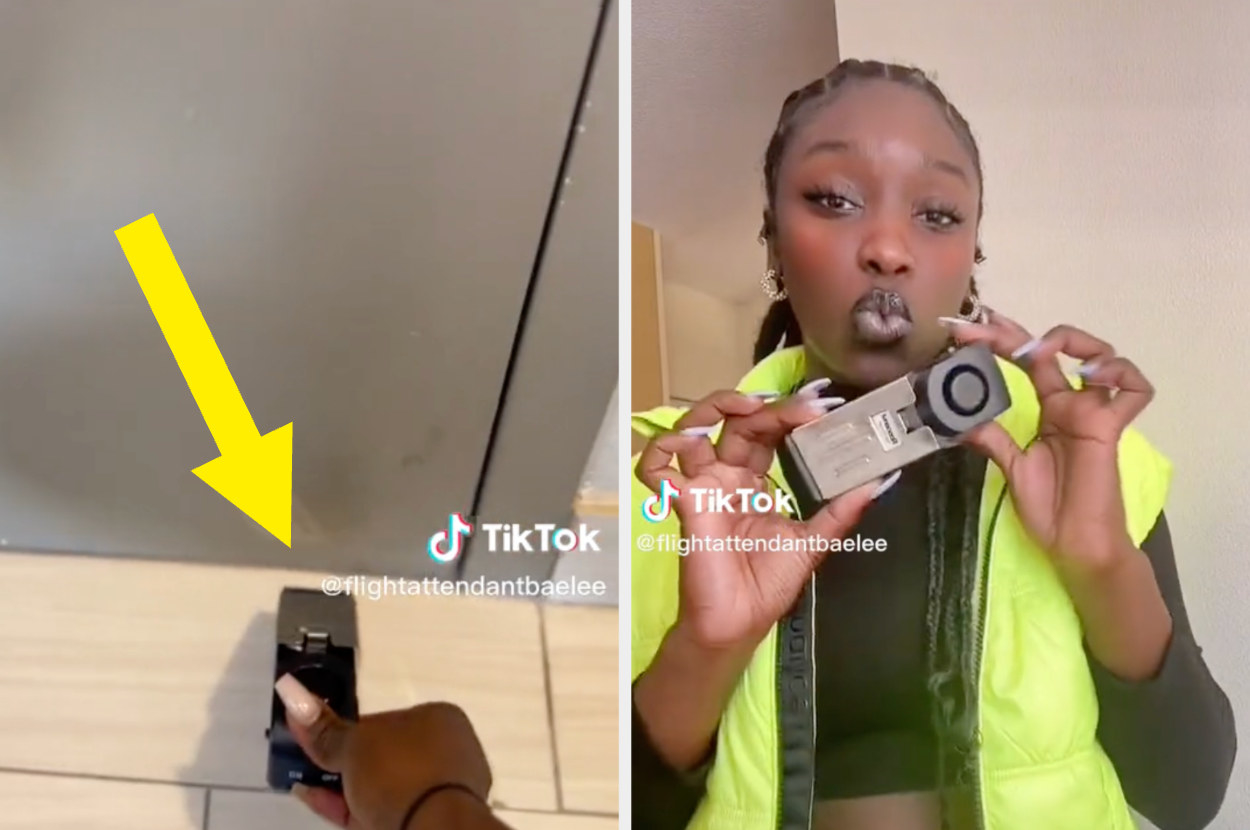
Since being uploaded, Allyah's video is making conversation with thousands of comments — but some of the responses have been mixed. "On one end, I have people supporting it 100%, and on the other, there are hundreds of people saying how 'paranoid' I am and how unnecessary a search is. But it’s ignorance."
"You never know what’s in the room you’re checking into," Allyah said. She's been checking her hotel rooms for years since she started flying, and through her video, she hopes to remind viewers to be vigilant when entering hotels, Airbnbs, and other establishments. "I honestly hope people will stop living in a fantasy land, thinking that things can't or won’t happen to them. It’s necessary, and I hope they never have to live through an eye-opening experience first before realizing how necessary it really is."
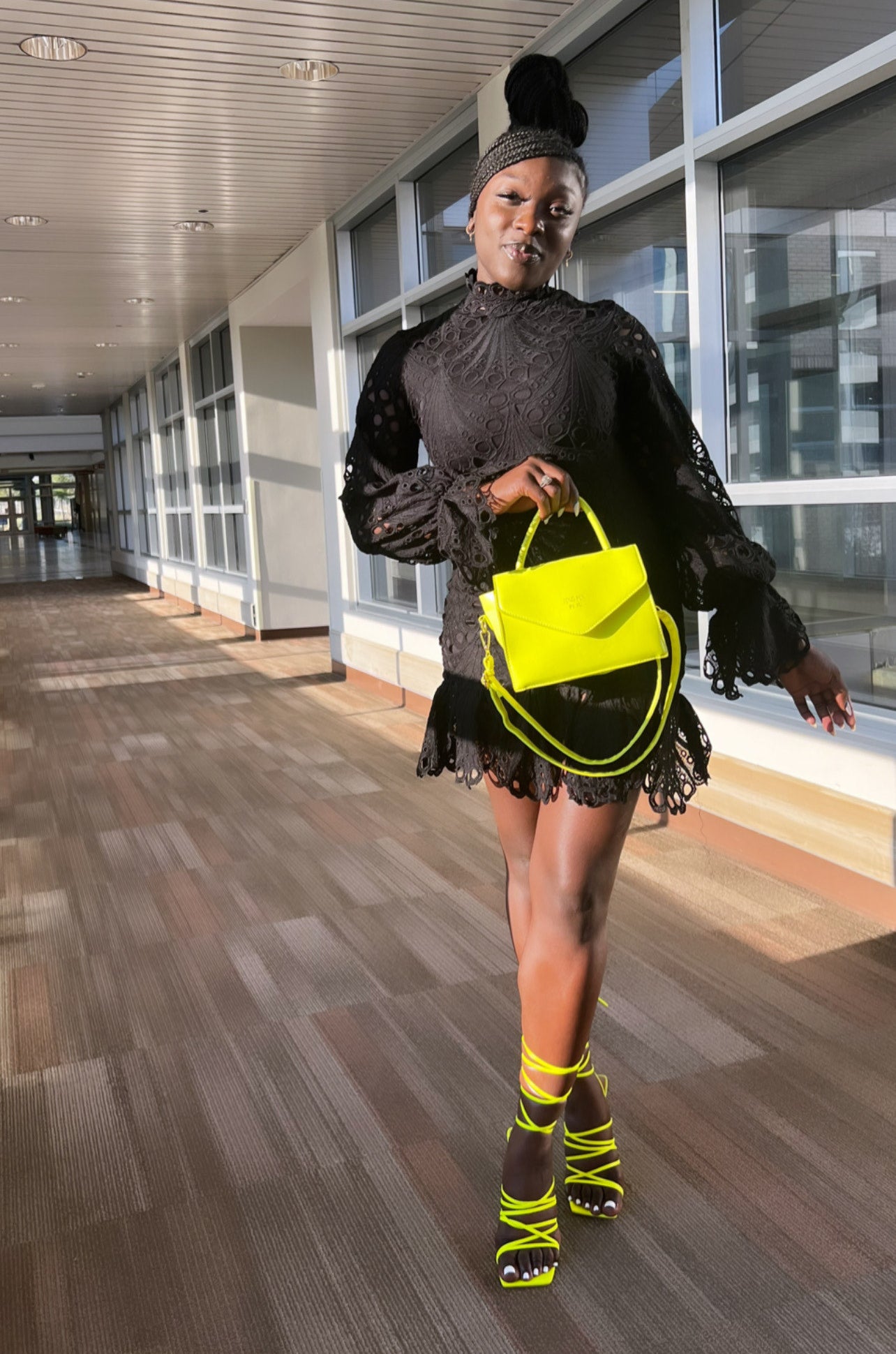
As someone who travels a lot for a living, Allyah has faced situations that made her realize how easy it is for other people — even strangers — to gain access to the hotel room you're in. "There have been countless times where I've been locked out of my room or forgot my key and have gone to the front desk and asked for a new room key without providing any identification," she said.
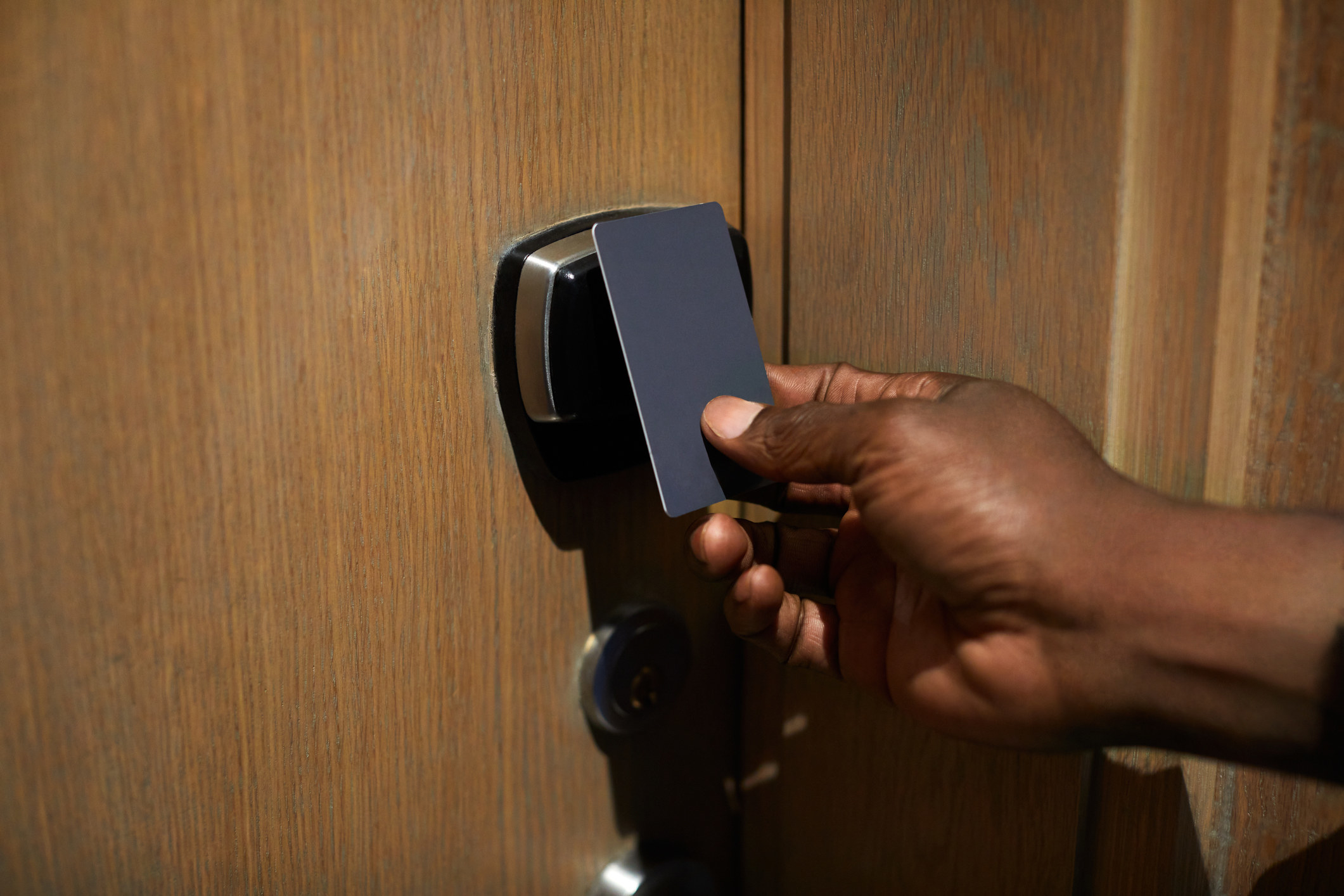
Allyah added that her coworkers have had people try and enter their rooms on numerous occasions. "Sometimes under normal circumstances, and plenty times in the middle of the night, which is a lot less 'normal' and actually very scary and uncomfortable."
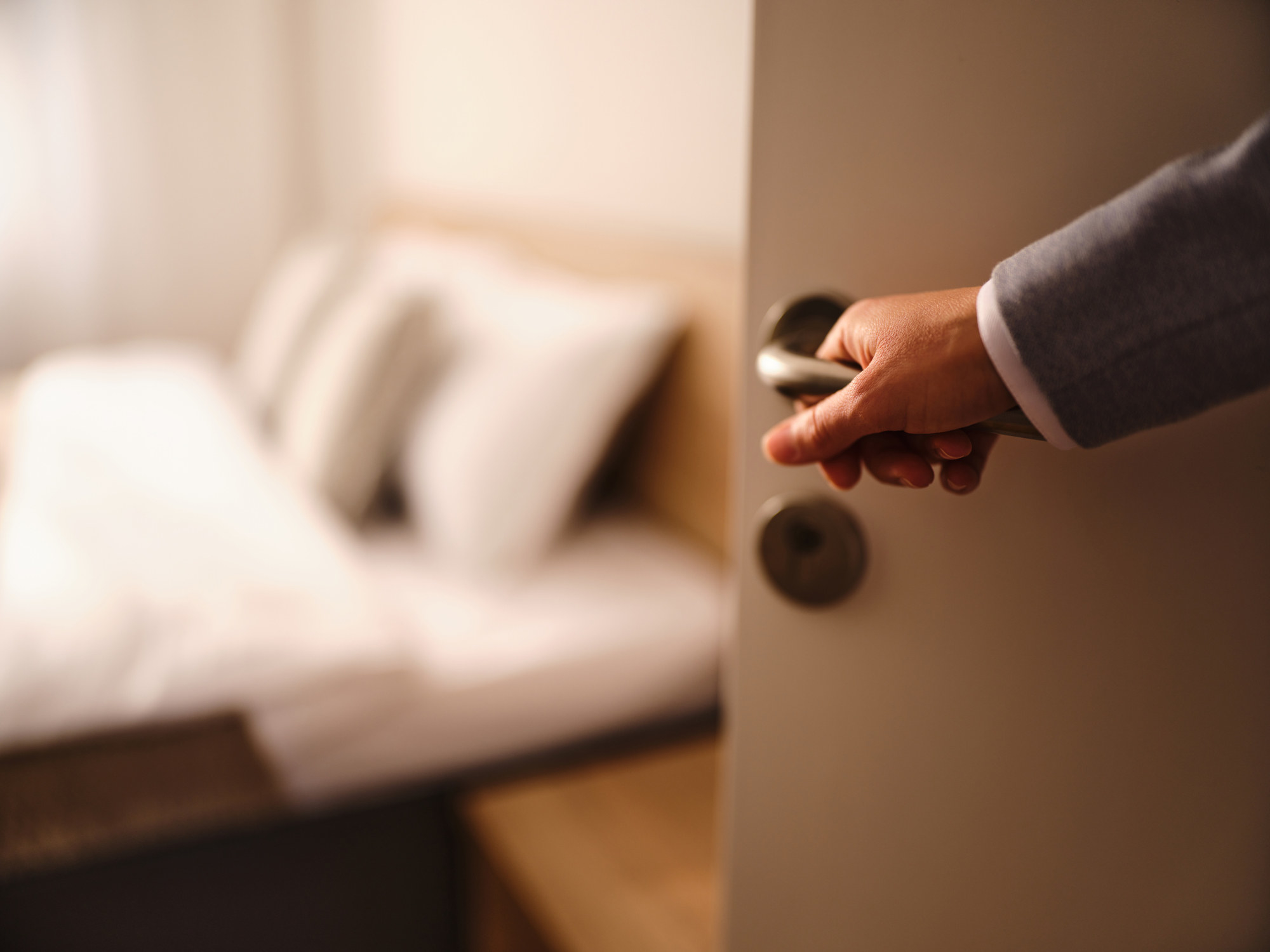
"Most hotels only have cameras in the lobby and common areas, most times not including the hallways and elevators, which is unfortunate."
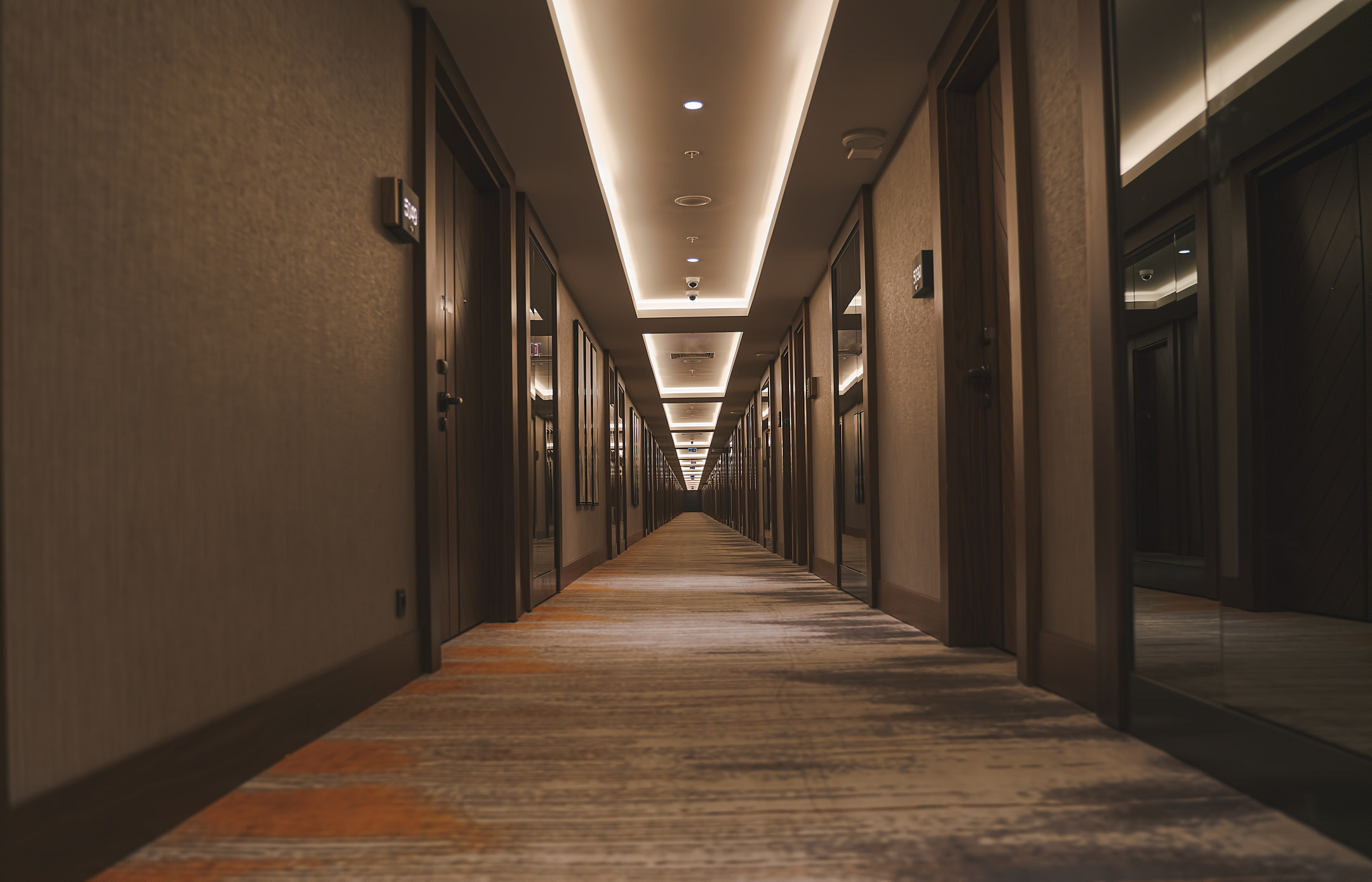
Despite some skepticism about her routine, several commenters have chimed in saying how valuable her advice is and how they want to be more cautious when traveling.



Others shared the unsettling realizations they've had while traveling — like this commenter who stayed at a hotel and discovered she didn't need a key to get into her room.
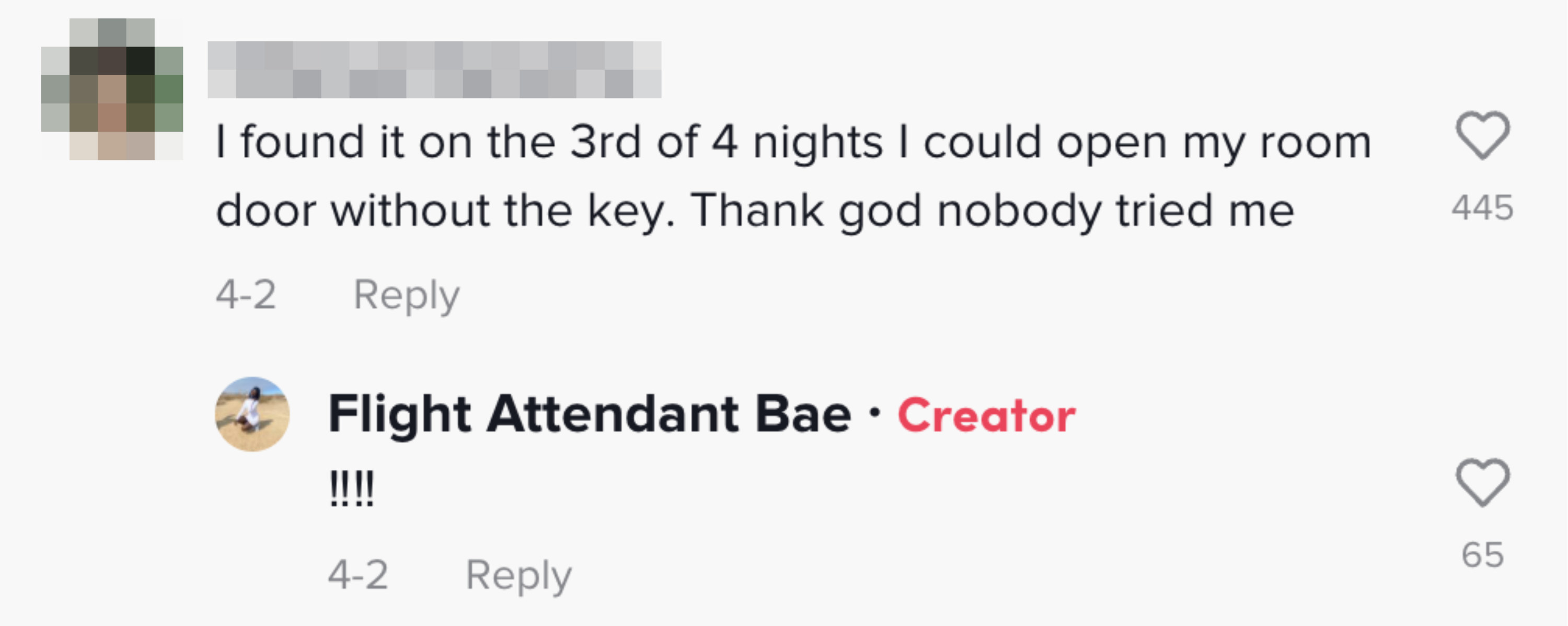
Another commenter revealed that during her stay, she had a hotel clerk tell her she was "attractive" and then later on enter her room.
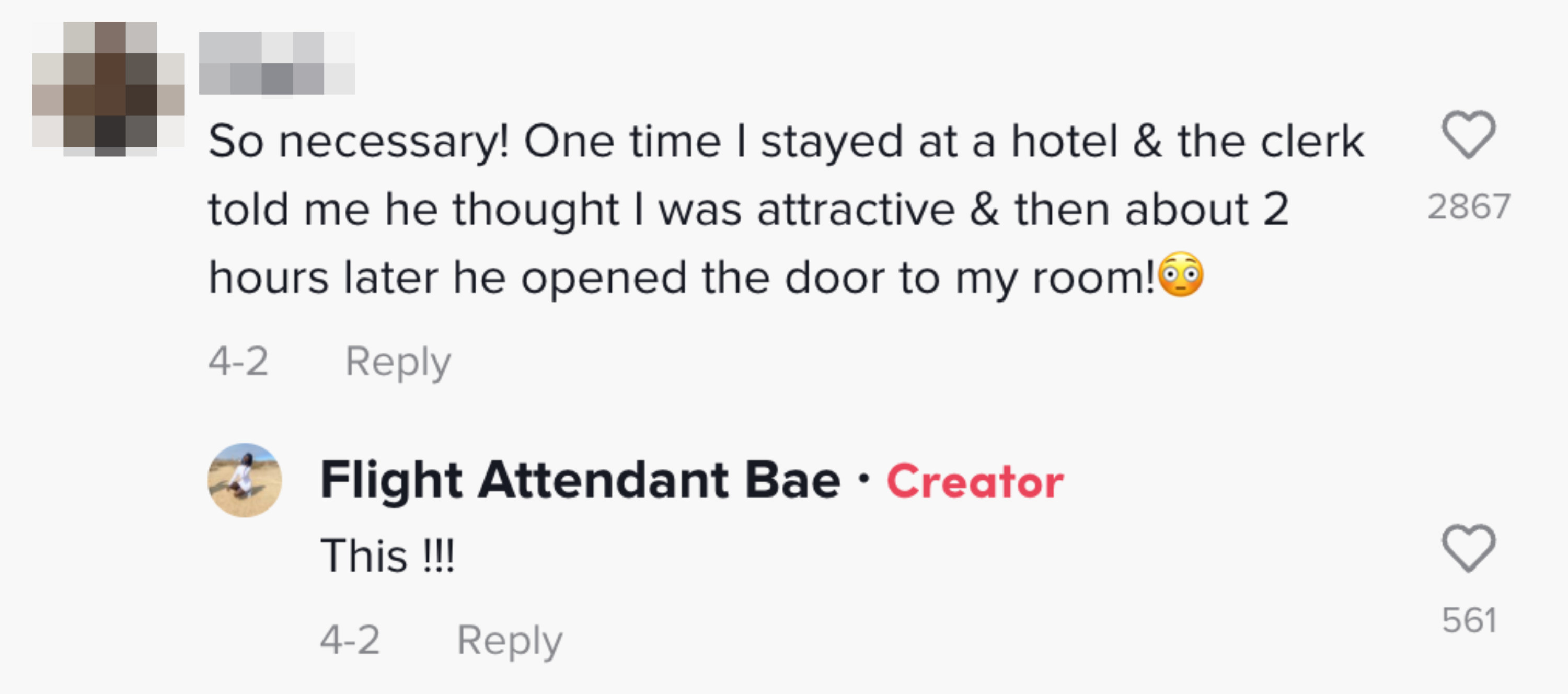
Allyah also spoke about the scary reality that traveling alone as a Black woman can come with serious risks, as Black women are often targeted for crime. "I am a Black woman. Non-Hispanic Black women literally have the highest rates amongst homicides in our country, but aside from that, I’m only speaking from MY personal perspective."
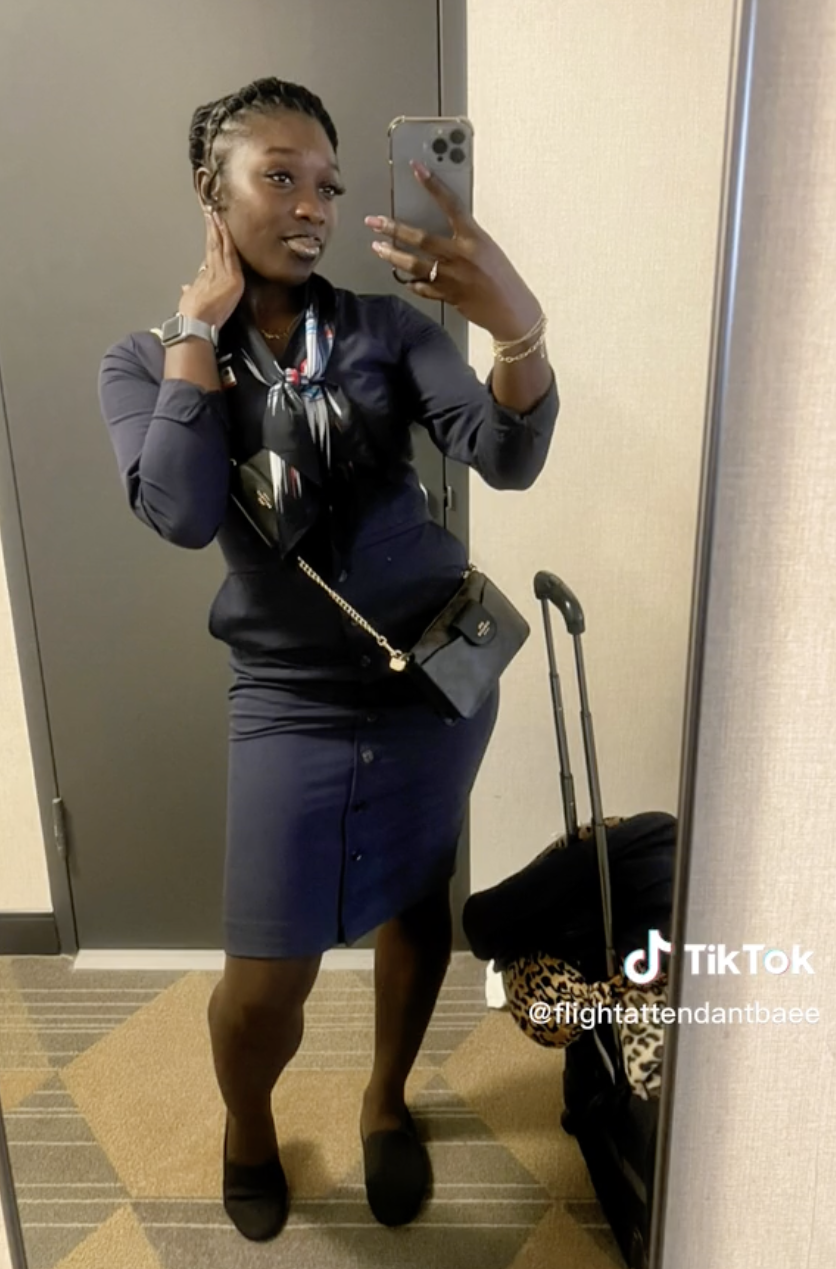
And while Allyah is speaking from her own experience as a Black woman in America, she believes that everyone should take their own safety precautions in hotels. "My video was not to insinuate that other races and genders shouldn’t check as well because they 100% should. Everyone should. It’s equally important," she said. "You literally can never be TOO safe."
